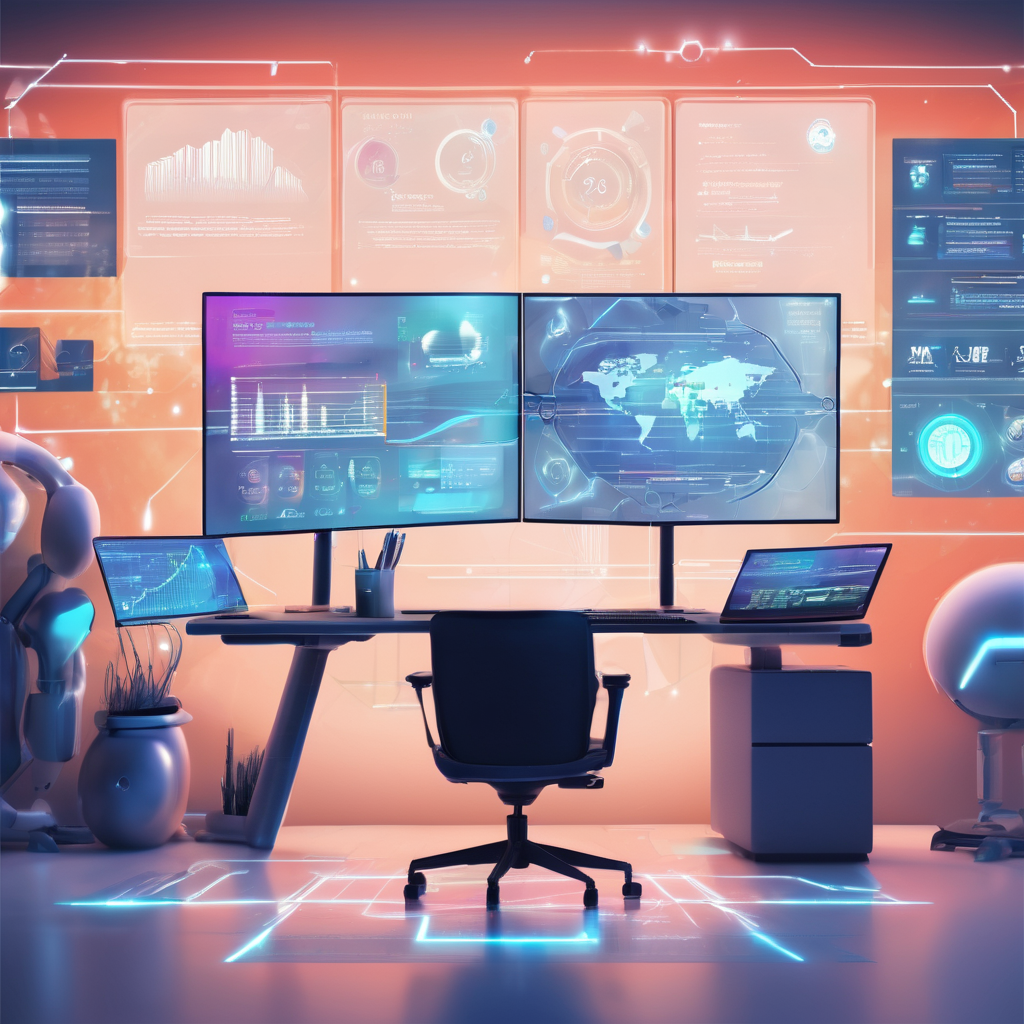
When contemplating the concept of discovery and the process of uncovering or acquiring new knowledge or experiences, I am reminded of the necessity for exploration, perseverance in seeking, and acknowledgment of our own limitations and lack of knowledge. Does artificial intelligence (AI) alter or eliminate this experience?In the past, I roamed through the labyrinthine library, finding solace amidst stacks of books, losing myself in fantastical worlds created by authors like L. Frank Baum, C. S. Lewis, J. R. R. Tolkien, Arthur C. Clarke, Agatha Christie, and Ray Bradbury. Encyclopedias stood open, their pages a gateway to information in an era before digital searches. As the librarians pounded away at the keyboards, connecting us to public data networks and other libraries, I marveled at watching the blinking square on the screen, as my typed strings of characters embarked on an interdimensional journey. However, the school bell often interrupted my sojourn, signaling my return to reality. When reflecting on the act of discovery, there is an inherent understanding that it necessitates exploration, perseverance, and the recognition of our limitations. Occasionally, it entails leaps of faith into uncharted territories. The advent of the internet has undeniably transformed the way we discover and access knowledge, reshaping our perception of the world's vastness and the possibilities of what can be known. In recent months, I have delved into the realm of AI, specifically focusing on artificial general intelligence (AGI) and generative AI technologies like ChatGPT, Bard, DALL-E2, and Midjourney for images.
Initially, I experimented with ChatGPT on a personal level, utilizing its capabilities to assist me with writing letters for friends, addressing emails with the appropriate tone, and gaining insight into differing perspectives. AI became a valuable tool, aiding me in crafting outlines and overcoming the intimidating blank page syndrome. It helped me in editing documents, condensing information, note-taking, formulating agendas, devising budgets and emails, and outlining content strategies. Embracing AI's potential led me to employ it for higher-level tasks, such as developing reporting strategies, locating key information within articles, or identifying missing perspectives in stories. These AI tools act as collaborative partners, augmenting human expertise and enabling faster information processing, critical analysis, and breakthrough discoveries. John Tredennick, founder and CEO of Merlin Search Technologies, aptly describes ChatGPT as a "brain in a jar. " It lacks domain-specific knowledge and requires the user to connect the relevant documents to harness its processing power. ChatGPT and similar language models are currently in their infancy, yet they possess the potential to transform the field of discovery, particularly in terms of analysis and review. When AI became integrated into my daily routine, accelerating insights and analysis, it felt like my own personal revelation, similar to stepping into the unexplored terrains depicted in "The Martian Chronicles. " However, this transformative journey also necessitates critical reflection on the ethical implications of AI. It is imperative to consider issues such as irresponsible data usage, algorithmic transparency, the potential for inequality, the spread of disinformation and misinformation, and the reinforcement of biases. Engaging in ongoing discussions and establishing ethical best practices ensures that AI remains a tool for empowerment, not a force of dominance. As we navigate this new AI-powered era, akin to the introduction of the World Wide Web with accessible browsers in 1993, we must foster a symbiotic relationship between AI systems and human expertise. While AI possesses intelligence, it lacks consciousness, intuition, creativity, and contextual understanding, all of which are vital for meaningful analysis. AI is not a replacement for human connection and empathy, but rather a facilitator of information processing. It should not become a dominant force akin to the bullies of the past but ought to be embraced as a companion that augments our quest for knowledge. The opinions expressed in this essay are those of the author and do not necessarily reflect the views of Carolina Public Press or its contributors. This work is licensed under a Creative Commons Attribution-NoDerivatives 4. 0 International License. Feel free to republish this article, ensuring proper attribution, as we strive to provide informed and connected communities through our thoughtfully researched content.
None


Artificial intelligence (AI) is becoming an essential tool for improving user experience and engagement through advanced search engine optimization (SEO) techniques.

For a glimpse of today’s turmoil, look no further than the nearest office.

I was initially drawn to English because of my fascination with the analytical side of critiquing literature and interpreting poetry, which I found highly engaging.

Runway, a leading artificial intelligence company focused on creative tools for content creators, has announced an innovative partnership with IMAX to showcase AI-generated films across 10 major U.S. cities.

CNN's Jake Tapper utilized OpenAI's new Sora 2 app, an AI video generator, to illustrate some of the potential dangers posed by AI-generated video.

A recent report jointly published by Vivun and G2, titled State of AI for Sales Tools 2025, highlights the significant adoption and integration of artificial intelligence (AI) within the sales profession.

OpenAI has officially introduced its latest breakthrough, the GPT-5 Pro API, marking a major advancement in the development of AI language models.
Automate Marketing, Sales, SMM & SEO

and get clients on autopilot — from social media and search engines. No ads needed
and get clients today